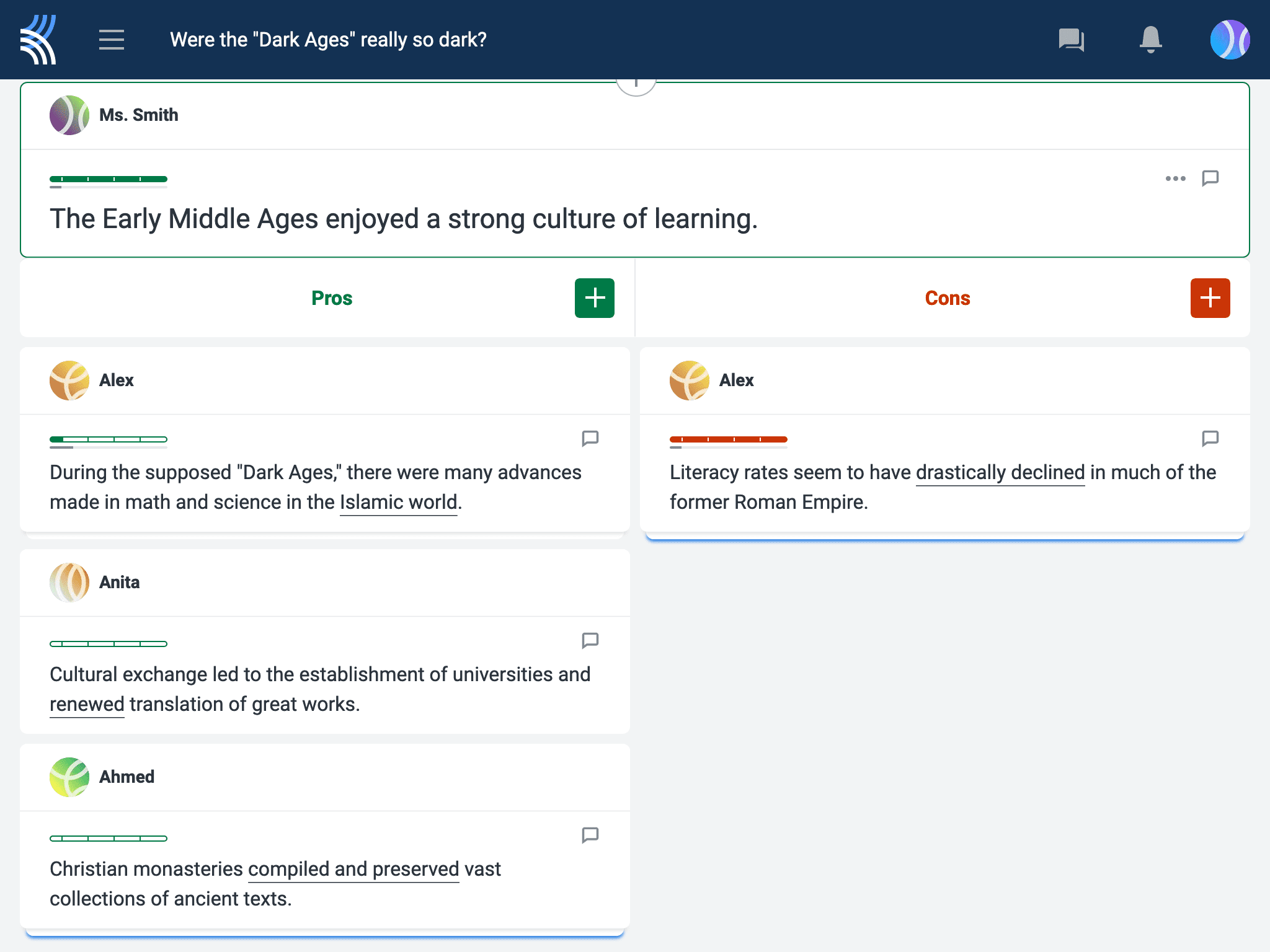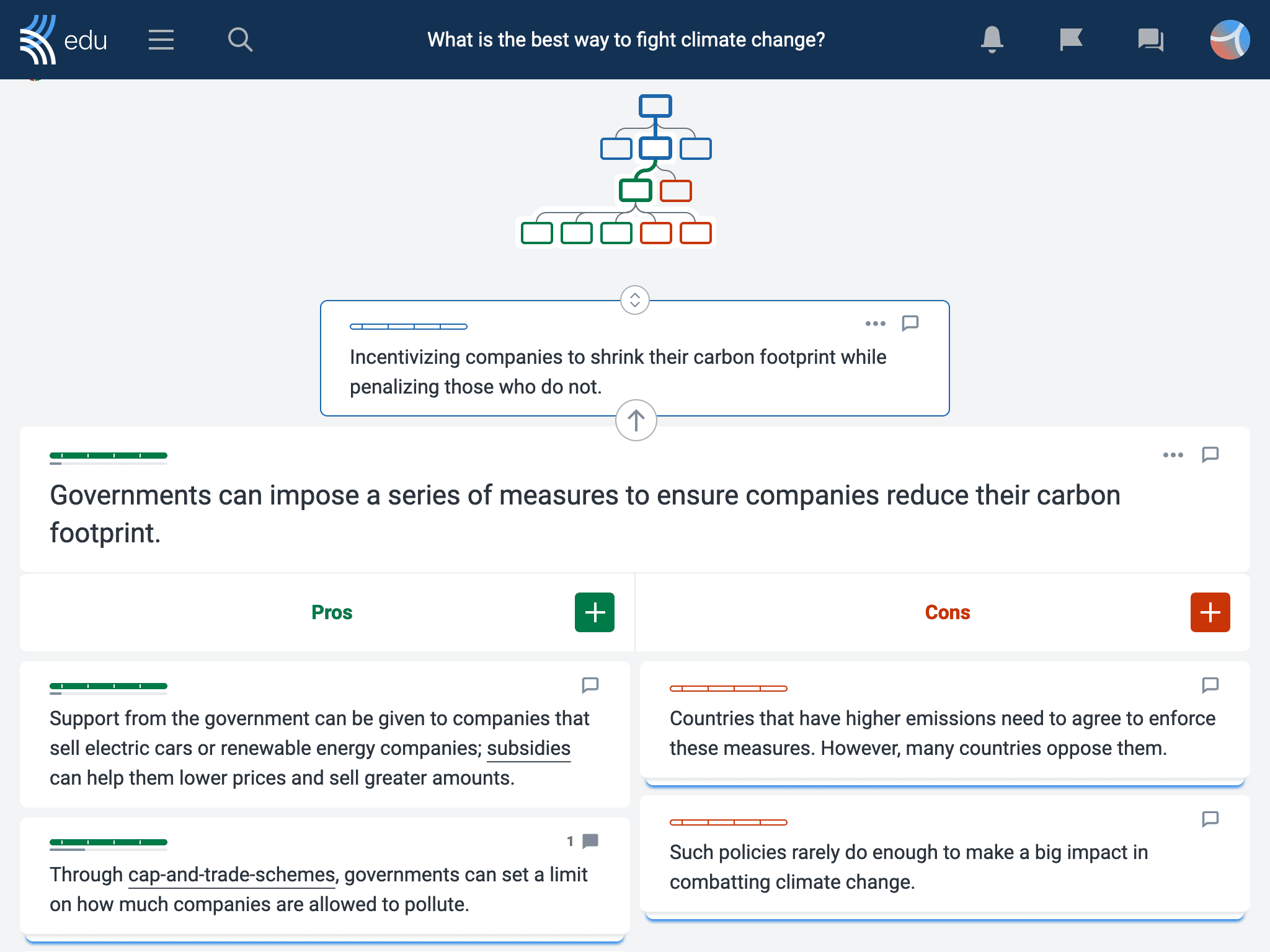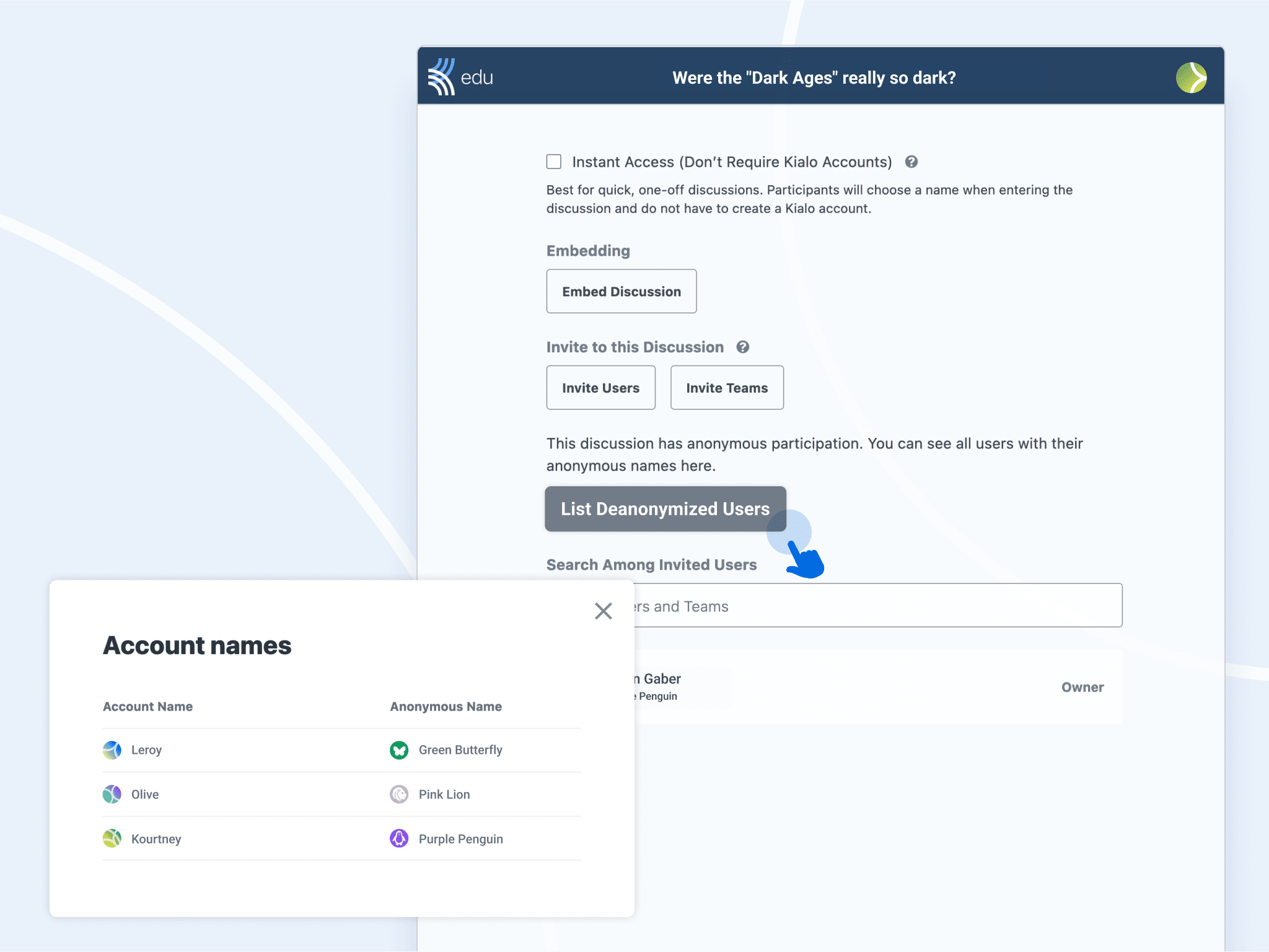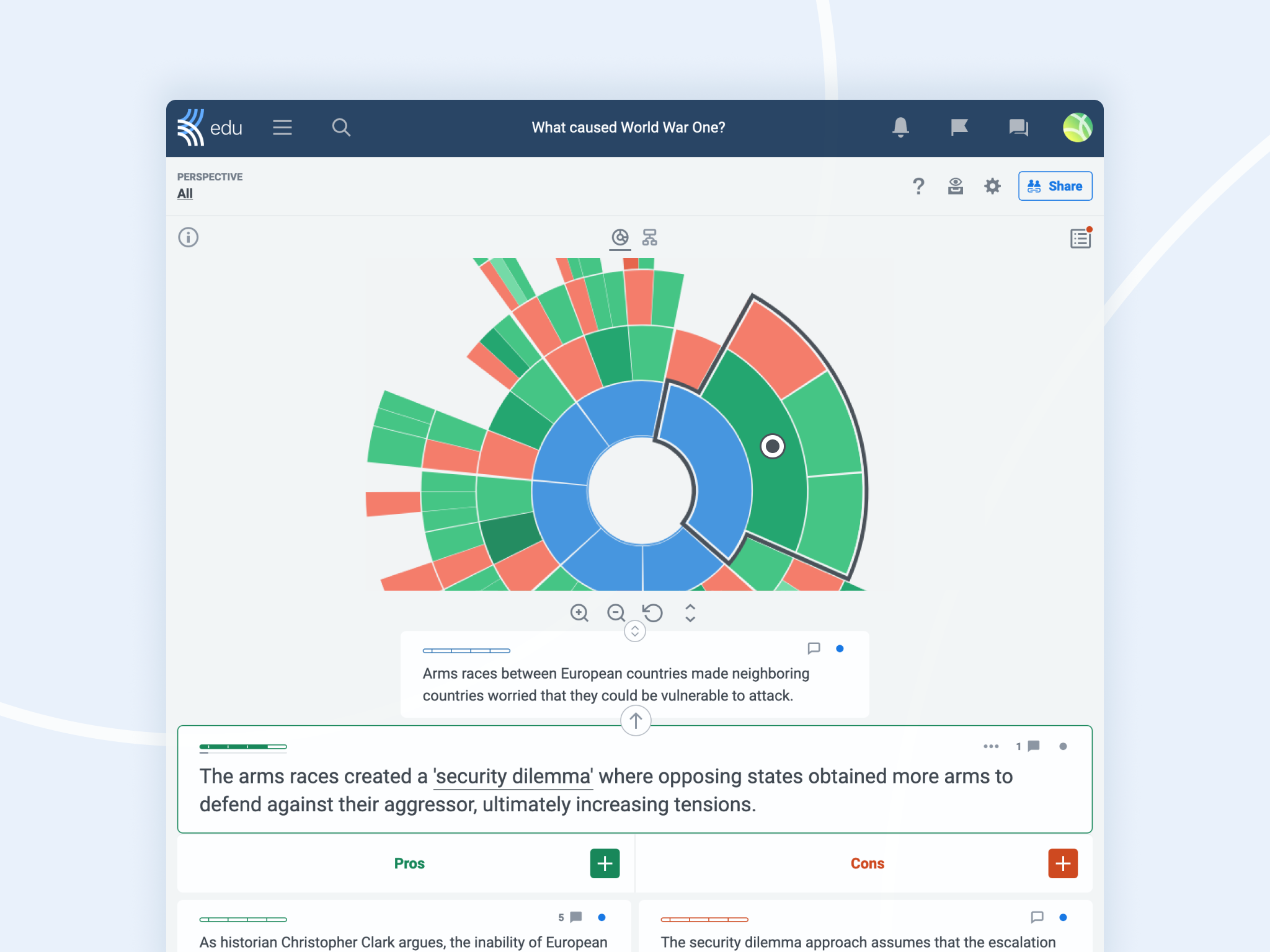Kialo completely free discussions provide an excellent platform for teaching students empathy — a vital life skill and an essential component of the social emotional learning curriculum. On Kialo, students of all ages can articulate their thoughts, respond to their peers, and explore diverse perspectives, helping them to build empathy.
Let’s explore some activities to help teach empathy to students, and how you can do so through discussions and debates!
Why is it important to teach students empathy?
Empathy is the ability to understand and share others’ feelings by imagining their experiences.
Some students may instinctively demonstrate empathy, but others will need guidance to develop this important skill.
Once students learn how to show empathy, it will benefit them in many ways:
- Improves relationships: Learning to understand and relate to others helps students strengthen their relationships. They start to value other viewpoints, helping them navigate conflicts more effectively through finding common ground with peers.
- Promotes emotional intelligence: Empathy helps students respond sensitively to others’ feelings, while recognizing and managing their own emotions appropriately.
- Encourages inclusivity: Empathetic students value diverse backgrounds and experiences, creating an environment of inclusivity and respect for all individuals.
- Promotes civic engagement: Empathetic students become more aware of social issues and the challenges others face, building their civic literacy and motivating them to contribute to their communities.
Together, these benefits contribute to a supportive and harmonious school community where positive relationships thrive.
Five activities for teaching empathy through debate
Kialo’s structured discussion format promotes meaningful, empathetic communication between students and develops their argumentation skills in line with Common Core Standards.
Let’s explore how you can use Kialo discussions to teach empathy to students.
1. Discussions that explore different perspectives
In Kialo discussions, all students can contribute their perspectives simultaneously, maximizing their exposure to different viewpoints. This collaborative format creates an ideal environment to build students’ empathy.

As students add claims to the discussion, supporting and opposing arguments appear side by side, prompting students to explore other perspectives. Students can add their own viewpoint directly under their peers’ claims, challenging all students to analyze both their own positions and those of others.
2. Discussions that build respectful communication skills
On Kialo, students communicate by adding short-form written claims to the discussion. This text-based format gives students time to reflect on the potential impact of their words and edit their claims before posting, cultivating more thoughtful expression.

Moreover, students can read and respond to their classmates’ contributions at their own pace. This reduces the risk of students giving impulsive — and potentially disrespectful — responses.
To support individual students, educators can change the student’s role to “Suggester.” This means educators can check and give feedback on the student’s claims before they appear in the discussion.
3. Discussions that encourage engagement with real-world topics
Engaging with sensitive or controversial real-world issues helps students develop emotional connections to topics and gain a deeper understanding of the topic’s human impact. In turn, this helps students build empathy for those affected.
Kialo helps educators create a safe space for these challenging discussions. The written format helps keep conversations focused on content, ensuring that no one feels personally judged for their opinions.
There’s even an Anonymous Discussion mode, where students contribute to discussions under randomized usernames, with only the educator knowing their true identity. This helps students practice both honest and empathetic responses without harboring the fear of judgment from peers.

For inspiration on your next discussion, visit Kialo’s Topic Library which offers more than 500 curriculum-linked debate topics and includes prompts for social, ethical, and civics issues.
4. Discussions that encourage open-mindedness
On Kialo, students break down their perspectives into step-by-step arguments. This encourages them to examine their own beliefs and biases, helping them build the open-mindedness essential for developing empathy.
Additionally, students can easily reference and add sources to their claims. This practice encourages students to consider evidence that may challenge their own beliefs.
Finally, students can view the entire discussion as either an argument tree or a “sunburst” diagram. They can ensure there is a balance of pros and cons and see instantly whether each branch of the discussion is fully developed. This visual reminder of various perspectives encourages students to keep an open mind by fully exploring each one.

5. Discussions that encourage reflection
Kialo’s text-based format enables students to reflect deeply on discussions, helping them find common ground between their perspectives and those of others.
During discussions, students can engage in reflection by voting on the impact of claims. When they click on the impact meter to rate the claim, the rating is displayed next to each claim.
Once all students have voted, educators can show students an aggregate of the class’s votes for each student to compare their personal opinion with others.
By doing so, students deepen their understanding of diverse perspectives to build empathy. For a more structured approach to voting, there’s even a Guided Voting option.
These are just a few ways to use Kialo’s engaging, interactive (and free!) written discussions to teach empathy to your students. We’d love to hear about the impact of Kialo discussions in your classroom! Contact us at feedback@kialo-edu.com or on social media.

